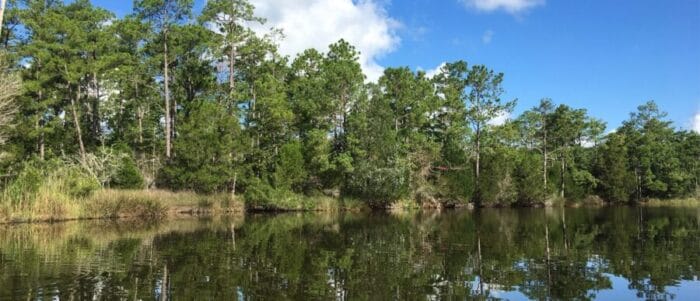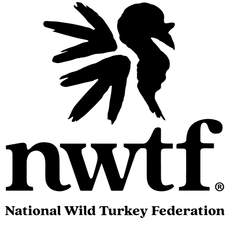NWTF and Partners Add Over 400 Acres to Public Game Lands in North Carolina
The North Carolina Coastal Land Trust recently purchased an over 400-acre waterfront property in Pamlico County through a partnership with the NWTF North Carolina State Chapter, North Carolina Wildlife Resources Commission and North Carolina Division of Coastal Management. The Coastal Land Trust then transferred the land to the state to expand the Goose Creek Game Lands.
The over 400-acre property lies along North Carolina Highway 304 and Lynch’s Beach Road between Bayboro and Vandemere. It hosts excellent habitat for wild turkey, white-tailed deer, black bear and other wildlife, with extensive forests of mixed pine-hardwoods and pocosin wetlands along with longleaf pine ridges.
“This land acquisition is a win for hunters, anglers, outdoor recreationists and our natural resources in North Carolina,” said Cully McCurdy, NWTF district biologist for North Carolina, Virginia and West Virginia. “This is a shining example how different partners with common goals can collaborate for the common good.”
The property also has over four miles of frontage along the Bay River, Smith Creek and Newton Creek. Smith Creek is designated as a primary fish nursery area, and Newton Creek and the Bay River are considered shellfish waters. All of these water bodies are classified by the state as “High Quality Waters” and “Nutrient Sensitive Waters.” This highly attractive and developable property has deep-water access on both the Bay River and Smith Creek less than 8 miles from the Pamlico Sound. The land is now conserved forever.
“This coastal waterfront property was prime for development,” said Janice Allen, director of land protection for the Coastal Land Trust. “We are so appreciative that the seller, the Bate Land Company, L.P., was willing to work with us to conserve it for its wildlife, water quality and scenic values. We also thank the National Wild Turkey Federation, Wildlife Resources Commission and Division of Coastal Management for partnering with us to conserve this special place on our coast.”
The NWTF North Carolina State Chapter raised $50,000 to help with the conservation of the Bay River property.
“Our organization believes that the most effective way to benefit wild turkeys on a scale that makes a difference is to contribute to habitat improvements and conservation,” said Luke Gibson, NWTF volunteer and NWTF Neuse Chapter representative. “Contributing to the Bay River Tract acquisition made sense to us since it will permanently conserve wild turkey habitat and make the land available to the public for hunting.”
“We were pleased to partner with the Coastal Land Trust and Wildlife Resources Commission on this coastal conservation effort,” noted Tancred Miller, policy and planning section chief of the North Carolina Division of Coastal Management. “When a funding opportunity through the Bipartisan Infrastructure Law’s National Coastal Zone Management Program became available for coastal habitat protection, we jumped on it. The 400-acre Bay River Tract rang all the bells and whistles of the program, and we were able to secure $500,000 towards its acquisition. We especially thank the folks at the National Oceanic and Atmospheric Administration who administer this funding program for working so diligently with us to bring the project to closing.”
Additional funding for the purchase of the Bay River Tract was made possible thanks to the North Carolina Land and Water Fund, Mr. and Mrs. Fred Stanback and the U.S. Fish and Wildlife Service.
“The North Carolina Wildlife Resources Commission will manage the property to improve habitat for native wildlife to include prescribed burning, thinning of forest stands and creation of wildlife food plots,” stated Ben Solomon, assistant chief and land acquisition manager of the Wildlife Resources Commission. “The land will be added to the Goose Creek Game Lands, and in the future, will be open for public hunting.”
Since its inception in 1973, the NWTF has provided the foundation for wild turkey conservation throughout North America. From the first research project funded in the 1970s, to the multimillion-acre restoration initiatives going on today and everywhere in between, conserving the wild turkey and preserving our hunting heritage has always been — and always will be — the backbone of the National Wild Turkey Federation.


